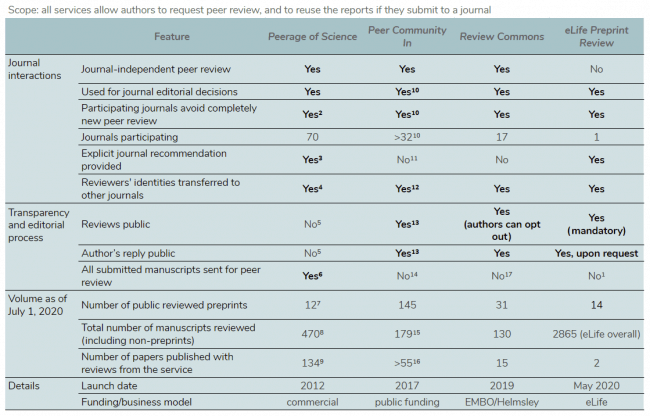Newsletter vol 26: Benefits and concerns about preprints, August Community Call, #biopreprints2020 report and more
Perceived benefits and concerns about preprints – initial survey results We had 546 responses to our survey about the perceived benefits and concerns around preprint – our thanks to everyone who shared their views. We will be taking a deeper dive into the data over the coming weeks but here are some initial takes from the responses: Main perceived…




